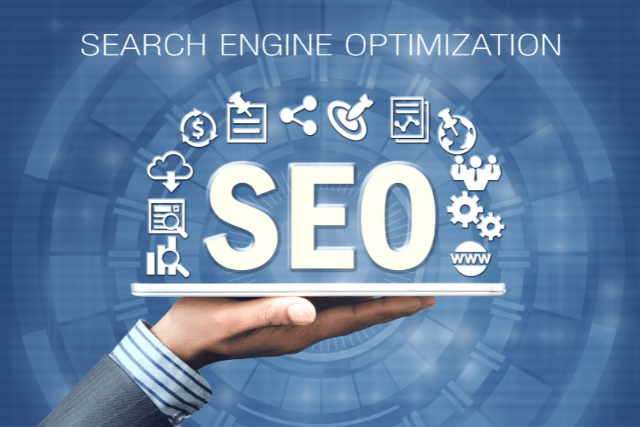Startups need to maximize their resources to grow quickly and efficiently. Digital marketing provides a powerful platform to reach potential customers without significant expenses. By leveraging tools like social media, content marketing, and SEO, startups can create tailored campaigns that attract and engage their target audience.
This approach helps build brand awareness, drive website traffic, and generate leads. Digital marketing also offers measurable results, enabling startups to refine their strategies based on real-time data. As a result, startups can make informed decisions, optimize their marketing efforts, and achieve sustainable growth.
Table of Contents
Cost-effective Strategies
Digital marketing offers numerous benefits for startups. One of the most compelling advantages is the cost-effective strategies it provides. These strategies allow startups to maximize their marketing budget while achieving significant results. Let’s explore how digital marketing can help startups save money and generate a high return on investment (ROI).
Lower Advertising Costs
Traditional advertising methods like TV commercials, radio spots, and print ads can be very expensive. In contrast, digital marketing offers a variety of affordable options that can fit any budget. For startups, this means they can reach their target audience without spending a fortune.
Here are some reasons why digital marketing has lower advertising costs:
- Pay-Per-Click (PPC) Advertising: Startups only pay when someone clicks on their ad, making it a cost-effective option.
- Social Media Advertising: Platforms like Facebook and Instagram offer targeted advertising options at a fraction of the cost of traditional media.
- Email Marketing: Sending promotional emails to a list of subscribers is much cheaper than sending physical mail.
Startups can also benefit from the ability to track and measure their campaigns in real-time. This allows them to make adjustments quickly and avoid wasting money on ineffective strategies. By focusing on the most successful tactics, startups can ensure their marketing budget is used efficiently.
High Roi Potential
Digital marketing not only saves money but also offers a high return on investment (ROI). Startups can achieve significant growth by using targeted and effective digital marketing strategies.
Here are some ways digital marketing can provide a high ROI:
- Search Engine Optimization (SEO): By optimizing their website for search engines, startups can attract organic traffic without paying for ads.
- Content Marketing: Creating valuable content can engage potential customers and build trust, leading to higher conversion rates.
- Social Media Engagement: Building a strong presence on social media can drive traffic and sales, often at a low cost.
Many digital marketing tools and platforms offer detailed analytics. These insights help startups understand what works and what doesn’t. By continually refining their strategies based on data, startups can maximize their ROI.
In summary, digital marketing provides startups with cost-effective strategies that lower advertising costs and offer a high return on investment. This makes it an ideal choice for new businesses looking to grow without breaking the bank.
Targeted Audience Reach
Starting a new business is exciting and challenging. Digital marketing offers many benefits for startups, making it easier to reach your target audience. One of the most significant advantages is the ability to target specific audiences with precision, ensuring your marketing efforts are effective and efficient.
Precision In Targeting
Digital marketing allows startups to target their audience with pinpoint accuracy. This precision helps you reach the people who are most likely to be interested in your product or service. Here are some key methods to achieve this:
- Demographic Targeting: Reach people based on age, gender, income, and more.
- Geographic Targeting: Focus on specific locations, from countries to neighbourhoods.
- Behavioral Targeting: Engage users based on their online behaviors and past activities.
- Interest Targeting: Connect with users who have shown interest in related topics or products.
By using these targeting methods, your startup can create personalized marketing campaigns that resonate with your audience. This approach not only improves engagement but also increases conversion rates. Moreover, digital marketing platforms like Facebook, Google, and LinkedIn provide advanced tools to help you refine your targeting strategies.
Niche Market Opportunities
Digital marketing opens up opportunities for startups to tap into niche markets. These markets consist of specific groups of people with distinct needs and interests. By focusing on a niche market, your startup can become a trusted authority in that space. Here are some ways to leverage niche market opportunities:
- Content Marketing: Create valuable content tailored to your niche audience’s interests and needs.
- SEO Optimization: Optimize your website and content to rank higher for niche-specific keywords.
- Social Media Engagement: Participate in niche-specific groups and communities on platforms like Facebook, LinkedIn, and Reddit.
- Email Marketing: Build a targeted email list and send personalized messages to your niche audience.
Focusing on a niche market helps your startup stand out from larger competitors. By addressing the unique needs of your niche audience, you can build a loyal customer base and foster long-term relationships. Additionally, niche markets often have less competition, making it easier for startups to gain visibility and traction.
Brand Awareness Growth
Startups often face the challenge of getting noticed in a crowded market. Digital marketing offers powerful tools to help startups grow their brand awareness. By utilizing digital marketing strategies, startups can reach a wider audience, create a memorable brand, and build a loyal customer base.
Building A Strong Online Presence
A strong online presence is crucial for brand awareness. It makes your startup more visible to potential customers and builds credibility. Here are key elements to consider:
- Website: Your website is your digital storefront. It should be user-friendly, fast, and mobile-optimized.
- SEO: Optimize your content with relevant keywords to rank higher on search engines. This increases organic traffic.
- Blogging: Regularly updated blogs with valuable content attract visitors and keep them engaged.
- Email Marketing: Build an email list to send personalized updates and offers to your audience.
Here is a simple table showcasing essential tools for building an online presence:
| Tool | Purpose |
|---|---|
| Google Analytics | Track website traffic and user behavior |
| Yoast SEO | Optimize your website for search engines |
| Mailchimp | Manage email marketing campaigns |
| WordPress | Create and manage your website and blog |
Leveraging Social Media
Social media platforms are powerful tools for increasing brand awareness. They allow startups to engage with their audience directly and build a community. Key strategies include:
- Consistent Posting: Regular updates keep your audience engaged and informed.
- Engagement: Reply to comments, messages, and mentions to build relationships with your audience.
- Influencer Collaborations: Partner with influencers to reach their followers and expand your audience.
- Paid Ads: Use targeted ads to reach specific demographics and increase visibility.
Here are some popular social media platforms and their benefits:
| Platform | Benefit |
|---|---|
| Large user base, targeted advertising options | |
| Visual content, influencer collaborations | |
| Real-time updates, customer service | |
| Professional networking, B2B marketing |
By leveraging social media, startups can create a strong, engaged community. This helps increase brand awareness and drives growth.
Measurable Results
Startups thrive on measurable results. Digital marketing offers a unique advantage with its ability to provide detailed insights. This ensures every marketing effort counts and allows startups to refine their strategies continuously. With measurable results, startups can optimize their resources, ensuring maximum ROI.
Analytics Tools
Analytics tools are crucial for startups. They help track and measure the performance of digital marketing campaigns. These tools provide real-time data and insights, enabling startups to make data-driven decisions.
Some popular analytics tools include:
- Google Analytics: Tracks website traffic, user behavior, and conversion rates.
- SEMrush: Monitors keyword rankings, SEO performance, and competitor analysis.
- HubSpot: Provides insights into lead generation, email marketing, and sales metrics.
- Hootsuite: Measures social media engagement and campaign effectiveness.
Each tool has unique features, making it easier to track various aspects of digital marketing. These tools offer dashboards, customizable reports, and alerts, helping startups stay informed about their campaign performance.
Using analytics tools, startups can:
- Identify high-performing content and replicate its success.
- Understand audience demographics and preferences.
- Track conversion paths and optimize the sales funnel.
- Measure the ROI of different marketing channels.
These insights help startups allocate resources effectively, ensuring every marketing dollar is well spent. Analytics tools are essential for startups to grow and succeed in the digital landscape.
Tracking Campaign Performance
Tracking campaign performance is vital for startups. It helps identify what works and what doesn’t. This allows startups to optimize their strategies and improve their results. With digital marketing, tracking performance is straightforward and efficient.
Key metrics to track include:
- Click-through Rate (CTR): Measures the effectiveness of ads and email campaigns.
- Conversion Rate: Tracks the percentage of visitors who take the desired action.
- Customer Acquisition Cost (CAC): Calculates the cost of acquiring a new customer.
- Return on Investment (ROI): Measures the profitability of marketing efforts.
- Engagement Rate: Monitors likes, shares, comments, and other interactions on social media.
Startups can use tracking tools like:
| Tool | Function |
|---|---|
| Google Ads | Tracks ad performance and conversion rates. |
| Facebook Insights | Monitors engagement and reach on Facebook campaigns. |
| Mailchimp | Analyzes email campaign performance. |
By tracking these metrics, startups can refine their marketing strategies. This leads to better targeting, higher engagement, and increased conversions. Tracking campaign performance ensures that startups can maximize their marketing efforts and achieve sustainable growth.
Enhanced Customer Engagement
Startups often face fierce competition. Digital marketing helps them stand out. One major benefit is enhanced customer engagement. Engaging with customers online builds loyalty and trust. Let’s explore how digital marketing boosts customer engagement.
Interactive Content
Interactive content grabs attention. It makes users stay on your website longer. Examples of interactive content include:
- Quizzes – Users answer questions and get personalized results.
- Polls – Easy for users to share their opinions quickly.
- Surveys – Collects valuable feedback from customers.
- Calculators – Provides instant results based on user input.
Interactive content keeps users engaged. It also provides you with data. You learn about your customers’ preferences. This helps in tailoring your products or services.
Here’s a simple table showing the benefits of different types of interactive content:
| Type | Benefit |
|---|---|
| Quizzes | Engages users and offers personalized results |
| Polls | Quick feedback on user opinions |
| Surveys | Collects detailed customer feedback |
| Calculators | Provides instant, personalized information |
Utilize interactive content to capture user interest. Keep them coming back for more.
Building Relationships
Building relationships with customers is vital. Digital marketing makes this easier. Social media platforms help you connect with your audience. Respond to comments and messages promptly. Show your customers you care.
Email marketing is another effective tool. Send personalized emails to your subscribers. Offer them special deals and updates. They feel valued and stay loyal.
Here are some tips for building strong relationships:
- Be Consistent – Post regularly on social media.
- Be Genuine – Show your brand’s personality.
- Be Responsive – Reply to customer inquiries quickly.
- Be Appreciative – Thank your customers for their support.
Consistency in your interactions builds trust. Genuine communication makes your brand relatable. Rapid responses show reliability. Appreciation strengthens customer loyalty.
Focus on building lasting relationships. This ensures long-term success for your startup.
Flexibility And Adaptability
Starting a business is a challenging journey. Digital marketing offers many benefits for startups. One key advantage is the flexibility and adaptability it provides. Digital marketing allows startups to adjust their strategies quickly. This ensures they stay competitive and meet their goals.
Real-time Campaign Adjustments
With digital marketing, startups can make real-time campaign adjustments. This means they can change their marketing tactics on the fly. This flexibility is crucial for startups. It helps them respond to market trends and customer behavior promptly.
Here are some key benefits of real-time adjustments:
- Immediate Feedback: Startups can see how their campaigns are performing right away.
- Cost Efficiency: Adjusting campaigns in real-time saves money by stopping ineffective ads.
- Improved Targeting: Campaigns can be fine-tuned to better reach the desired audience.
Consider this table that highlights the advantages of real-time adjustments:
| Benefit | Description |
|---|---|
| Immediate Feedback | See campaign performance instantly. |
| Cost Efficiency | Save money by stopping poor ads. |
| Improved Targeting | Reach the right audience more effectively. |
By leveraging real-time data, startups can ensure their marketing efforts are always on track.
Exploring New Trends
Exploring new trends is another significant benefit of digital marketing for startups. It allows them to stay ahead in their industry. Startups can experiment with new ideas and strategies without a huge investment.
Some ways startups can explore new trends include:
- Social Media: Platforms like Instagram and TikTok offer new ways to engage with customers.
- Content Marketing: Blogging and video content can attract a broader audience.
- Influencer Marketing: Collaborating with influencers can boost brand awareness.
Exploring new trends helps startups:
- Stay Competitive: Keeping up with trends ensures startups remain relevant.
- Innovate: Trying new methods can lead to innovative solutions.
- Understand Customers: New trends provide insights into customer preferences.
By staying adaptable and exploring new trends, startups can achieve long-term success in the digital age.
Global Reach
Startups thrive on innovation, and one of the most significant advancements is digital marketing. It offers a global reach that traditional marketing methods can’t match. This access transforms how startups connect with customers, opening doors to international markets and breaking geographic barriers.
Accessing International Markets
Digital marketing empowers startups to access international markets effortlessly. With tools like SEO, social media, and email marketing, reaching customers worldwide becomes feasible. Here are some key advantages:
- Cost-effective Advertising: Digital campaigns cost less than traditional methods, allowing startups to manage budgets efficiently while reaching a broader audience.
- Targeted Audience: Platforms like Facebook and Google Ads enable precise targeting based on demographics, interests, and behaviors.
- 24/7 Availability: Your online presence works around the clock, reaching potential customers in different time zones.
Consider the following table showcasing the benefits of digital marketing tools:
| Tool | Benefit |
|---|---|
| SEO | Increases visibility in search engines, driving organic traffic globally. |
| Social Media | Engages with international audiences directly and interactively. |
| Email Marketing | Builds relationships with customers globally through personalized content. |
With these tools, startups can establish a global footprint without the need for physical presence in each market.
Breaking Geographic Barriers
Digital marketing breaks down geographic barriers, allowing startups to compete on a global stage. Here are some ways it helps:
- E-commerce Platforms: Online stores enable startups to sell products anywhere in the world.
- Global Shipping Solutions: Partnerships with international shipping companies facilitate worldwide product delivery.
- Multilingual Content: Creating content in various languages broadens the customer base.
Consider the following strategies to enhance global reach:
- Localized SEO: Optimize content for local search engines to improve visibility in different regions.
- Cultural Sensitivity: Adapt marketing messages to resonate with diverse cultural norms and values.
- Global Partnerships: Collaborate with local influencers and businesses to build credibility and trust.
By leveraging these strategies, startups can overcome geographic limitations and tap into new markets, driving growth and success on an international scale.
Competitor Insights
For a startup, digital marketing is a game-changer. It offers numerous benefits. One of the key advantages is gaining competitor insights. Understanding what your competitors do helps you stay ahead. It allows you to refine your strategies and seize opportunities they might miss.
Analyzing Competitor Strategies
Analyzing competitor strategies is crucial. It helps you understand their strengths and weaknesses. Start by researching their websites. Look at their design, content, and user experience. Note what works well and what doesn’t.
- Content Analysis: Examine their blog posts, articles, and social media content. Identify the topics they cover and the keywords they target.
- SEO Tactics: Use tools to check their SEO strategies. Look at their backlinks, meta tags, and keyword density.
- Advertising: Review their ads on Google, Facebook, and other platforms. Note the ad copy, images, and targeting options they use.
Another effective way is to sign up for their newsletters. This gives you insights into their email marketing tactics. Observe the frequency, tone, and content of their emails. Follow them on social media to see how they engage with their audience.
Here is a simple table to organize your findings:
| Strategy | Competitor A | Competitor B |
|---|---|---|
| Website Design | Modern, User-friendly | Outdated, Cluttered |
| Content Quality | High, SEO-optimized | Low, Rarely updated |
| Social Media Engagement | Very Active | Moderate |
Identifying Market Gaps
Identifying market gaps gives you a competitive edge. Market gaps are areas your competitors haven’t addressed. These can be unmet customer needs or unexploited niches. Start by conducting a SWOT analysis. This helps you find opportunities in the market.
Use online tools to analyze customer reviews and feedback. This shows what customers like or dislike about your competitors. Look for complaints or suggestions. These can be potential gaps you can fill.
Here are some steps to identify market gaps:
- Customer Surveys: Conduct surveys to understand customer needs.
- Competitor Reviews: Read reviews on platforms like Yelp, Google Reviews, and social media.
- Keyword Research: Use tools to find keywords your competitors miss.
Filling these gaps can set you apart. Offer unique products or services to attract customers. This not only boosts your growth but also establishes your brand in the market.
Frequently Asked Questions
What Is Digital Marketing For Startups?
Digital marketing for startups involves using online channels to promote products or services. It includes strategies like SEO, social media marketing, and email campaigns.
Why Is Digital Marketing Essential For Startups?
Digital marketing helps startups reach a larger audience with a smaller budget. It drives brand awareness, customer engagement, and sales, making it essential.
How Can Digital Marketing Boost Startup Growth?
Digital marketing boosts startup growth by targeting specific audiences, increasing brand visibility, and generating leads. It offers measurable results and ROI.
Can Startups Afford Digital Marketing?
Yes, digital marketing is cost-effective and offers flexible budgets. Startups can start with small investments and scale as they grow.
Conclusion
Digital marketing offers startups numerous benefits, from cost-effective advertising to targeted customer engagement. Embrace these strategies to boost your brand’s visibility and growth. Leverage social media, SEO, and email marketing to build a strong online presence. Start your digital marketing journey today and watch your startup thrive in the competitive market.







